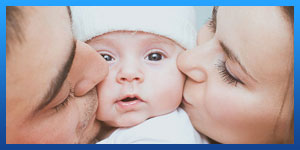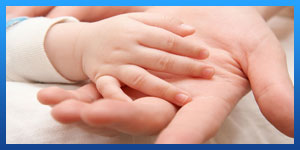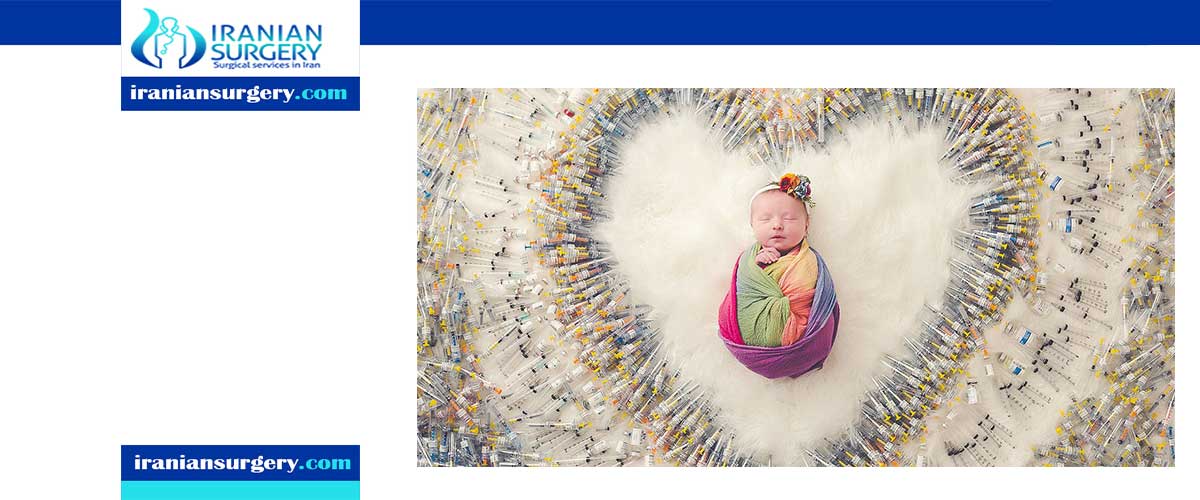How much does egg donation cost in Iran?
The cost of donor egg (egg donation) in Iran starts from 1500$.
This includes the donor compensation and medical process.
Is egg donation legal in Iran?
Egg donation is authorized in Iran and cities including Shiraz, Tehran and Mashhad are the best in Iran for egg donation.
Egg donation prices differ in each of these cities merely due to geographical factors.
But in terms of quality, all three cities are top-notch with little to no difference.
Ideal candidate for egg donation in Iran
IVF treatment with donor eggs gives women who are unable to conceive the chance to have a family. The process is very similar to IVF treatment, except that the eggs used are from an egg donor.
Egg donor IVF is a fertility treatment option for those who can’t use their own eggs, for whatever reason. Especially when using a screened egg donor (as opposed to a family member or friend), the success rates for egg donor IVF are good—higher than the average IVF success rates for couples not using a donor.
While egg donor IVF means the intended mother will not be genetically related to her child, the intended father will be, unless a sperm donor is also being used. This makes it more attractive of an idea than embryo donor IVF. With an embryo donor, neither intended parent would be genetically related to the child.
Read more about : IVF in Iran
Read more about : IVF cost in Iran
Read more about : Surrogacy in Iran
Free Consultation
Read more about : PGD in Iran
Read more about : PGS in Iran
Infertility Treatment with Iranian Surgery Specialists
Iranian Surgery doctors have helped thousands of people begin or expand their families over the years. Your compassionate team of experts can evaluate the cause of your infertility, and help you find a treatment plan that’s the right fit for you.
Iranian Surgery specialists in obstetrics and gynecology are leaders in infertility treatments, and will work with you to conceive via medication, surgery, in vitro fertilization (IVF) or another method.
Iranian Surgery doctors have extensive experience in diagnosing and treating infertility in couples. Each year, our experts see nearly 400 men and women with infertility issues.
Read more about : How many days after period is frozen embryo transfer?

Advanced diagnosis and treatment
Our team is a leader in advanced infertility treatments, including oocyte preservation, fertility preservation, and treatment of uterine fibroids and endometriosis. So, you can freeze oocytes to create an appropriate number of embryos. The Iranian Surgery team is constantly assessing the latest evidence in fertility treatments to give you the best options while minimizing delays and unnecessary tests.

Who can be an egg donor?
Any healthy woman who is:
. Less than 35 years old
. Non-smoker
. Not overweight (BMI less than 30)
. No family history of genetic or inherited diseases
. No history of mental illness
It is preferable for the donor to have had a healthy child (or children) of her own but not required.
Risks and Side effects
Egg donors face similar risks as women going through conventional IVF. The fertility drugs taken to stimulate the ovaries all come with risks and side effects that the donor must know about.
The biggest risk to the donor is developing OHSS. Because donors are usually young and very fertile, their risk may be slightly higher than an infertile woman going through IVF.
It’s extremely important the donor knows the signs and symptoms of OHSS so it can be dealt with quickly. Untreated OHSS can threaten her fertility and even her life, in rare cases.
There are also psychological risks to the donor. The donor may later regret the decision to donate her eggs, or wonder what happened to the eggs retrieved and/or the child conceived with her help.
That said, many donors experience feelings of satisfaction and pride in helping a family. Speaking to a counselor before donation is extremely important and usually required by egg donor programs.
For the intended mother, the primary risk of donor egg IVF is conceiving a multiple pregnancy. To reduce the risk, as few embryos as possible should be transferred. Talk to your doctor about whether single embryo transfer may be best for your situation.
During IVF Treatment with Donor Eggs
Egg Donor IVF Process
Here’s a very condensed and basic explanation of what the egg donor IVF process looks like. For the sake of simplicity, the explanation below assumes a heterosexual couple is having a child with the male partner’s own sperm, and the female partner is going to carry the child. It also assumes you’re using “fresh” eggs and not frozen.

Read more about : 2nd iui success rate
Decisions and Logistics
After a reproductive endocrinologist determines that egg donor IVF would be the best option for a couple, the intended parents meet with a psychologist or counselor. They discuss the psychological risks and benefits to egg donor IVF, and decide if this is the right path for them.
The intended parents will also likely meet with a financial advisor at the fertility clinic. Egg donor IVF is very expensive, and they will need to be sure they can afford it, and create a plan on how to get the funds they need.
Once the fertility doctor and a therapist have cleared the intended parents, the next step is finding an egg donor.
The process of finding an egg donor requires time and careful consideration. You may spend months on this step.
Once you find and select a donor—and once they are available for your cycle (there may be a waiting period)—you’ll need to attend to a number of legal and financial matters.
You will need to sign a contract before the cycle can start. This contract is written up and/or reviewed by a lawyer specializing in family reproductive law. Your clinic or agency may offer to “share” a lawyer with you. This is less expensive overall, but you should hire your own legal counsel.
A lawyer who represents the clinic, agency, or donor can’t also fully advocate for you. Each party should have their own legal representation. It’s worth the extra money for the peace of mind.
Before Donation
Once all the legal and financial issues are settled, and the donor and intended mother have completed whatever fertility testing and screening is required for treatment to begin, you’ll start the actual egg donor IVF cycle.
The intended mother and donor will need to have their menstrual cycles put in sync.
This way, when the donor’s fertilized eggs are ready for embryo transfer, the intended mother’s uterus will be physiologically ready to accept an embryo. This means taking birth control pills and usually also injectable hormones that suppress the reproductive system.
Treatment Cycle
Once the donor and intended mother get their periods, the treatment cycle itself will begin. The donor will be taking injectable fertility drugs in order to stimulate egg production. Her cycle will follow very closely to a conventional IVF cycle, skipping the embryo transfer.
The intended mother will give herself injections meant to suppress the reproductive system so the doctor can keep the donor and her in sync. She will also take estrogen supplementation. The estrogen will signal the uterus to create a suitable lining.
When the eggs in the donor’s ovaries look ready, the donor will get an injection of HCG. This is also known as a trigger shot. It will start the last stage of egg maturation. Around this time, the intended mother will start taking progesterone supplementation. Like the estrogen, this helps prepare the uterus for the embryo.
The donor will come into the fertility clinic for the egg retrieval. Egg retrieval is done using an ultrasound-guided needle.
After the egg retrieval is complete, the donor’s active role in the cycle is over.
She will be given home care instructions for recovered from the egg retrieval, and instructions on what to do if she suspects she’s developing ovarian hyper stimulation syndrome (OHSS).
That same day of the egg retrieval, the intended father will provide a semen sample. In some cases, the sample may be prepared and frozen earlier. But it’s usually done on the day of the egg retrieval itself.
The retrieved donor eggs will be put together with the intended father’s sperm cells. Hopefully, some of the eggs will become fertilized. After three to five days, the intended mother will come into the fertility clinic for an embryo transfer.
One to two healthy looking embryos will be transferred into the intended mother’s uterus. Any extra embryos will be frozen—or cryopreserved—for a future cycle.
The intended mother will continue to take progesterone supplementation. About ten days after the embryo transfer, the intended mother will take a pregnancy test to see if the cycle was a success.
Read more about ICSI success rate after embryo transfer
Read more about IVF process timeline
After IVF Treatment with Donor Eggs
Success Rates
According to the Center for Disease Control, the live birth rate for donor egg IVF is 55.9% for fresh embryo transfer and 40.2% for frozen embryo transfer. This is the nationally reported average for 2013. Success rates will vary from clinic to clinic.
In the case of egg sharing with another infertile couple, the success rate may be lower. The same can be said for using a friend or family member as a donor, who may not be the ideal donor candidate.
People also ask about egg donation in Iran
The age of the woman is usually between 20 to 30, and they are only approved if they have good eggs and have at least 5-8 useful eggs.
At the Iranian Surgery Center, with to the medications we use for female donors, this number is usually higher, and in some cases, it has even reached 20 eggs with excellent quality.
Normally, in 70% of cases, a successful pregnancy can be achieved by using freshly donated eggs, and this chance is somewhat reduced if frozen eggs are used. That being said, if the egg recipient couple has plans for another future pregnancy, the donor's extra eggs are frozen after fertilization. This helps to maintain the genetic link between the children in the subsequent pregnancies of the recipient couple.



2 Comments
Hello, I am kousar from Pakistan,want ivf with donor egg ,I am early menopause married woman my age is 43 plz reply me urgently because I am taking contraceptive for 2 months
Hello dear Kousar, hope all is well, would you please send your medical documents on my WhatsApp number in order to consult your casae with some IVF centers,hospitals and surgeons and provide you with enough information. This is my WhatsApp number +989019290946. Thank you